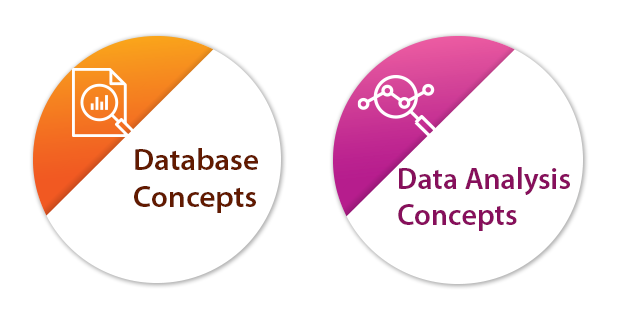In today’s digital age, data is the new oil. But just like oil, data needs to be managed efficiently to unlock its true potential. This is where robust database management systems (DBMS) come into play. Among the most popular DBMSs are Microsoft SQL Server and Oracle Database. If you’ve ever wondered which one is better for data management, you’re in the right place. Let’s dive into a detailed comparison of these two database giants.
What is Microsoft SQL Server?
Microsoft SQL Server is a relational database management system (RDBMS) developed by Microsoft. First released in 1989, SQL Server has grown to become a leading platform for data storage, management, and retrieval. It’s widely known for its integration with other Microsoft products and services, making it a go-to choice for businesses that are already entrenched in the Microsoft ecosystem. For those looking to enhance their skills in using SQL Server, a data analyst course focused on SQL Server can be a valuable investment.
Key Features:
- Transaction Processing: Supports high-performance transaction processing.
- Business Intelligence: Built-in tools for data analysis and reporting.
- High Availability: Features like Always On Availability Groups ensure minimal downtime.
Common Use Cases:
- Enterprise-level data warehousing
- Business intelligence and analytics
- Web-based applications
What is Oracle Database?
Oracle Database, developed by Oracle Corporation, is another heavyweight in the RDBMS arena. Launched in 1979, it has become a top choice for businesses that require high scalability, advanced security, and robust performance. For those seeking to master Oracle’s extensive features, a Data Analytics Course with a focus on Oracle Database could be particularly beneficial.
Key Features:
- Multi-model Database: Supports various data models, including relational, document, and graph.
- Advanced Security: Features like data masking and encryption ensure data protection.
- Cloud Readiness: Strong support for cloud deployments and hybrid environments.
Common Use Cases:
- Large-scale enterprise applications
- Cloud-based applications
- Complex data analytics
Comparing Performance
When it comes to performance, both SQL Server and Oracle Database are top-tier, but there are subtle differences.
- Query Processing Speed: SQL Server is known for its fast query processing, particularly when dealing with large datasets. Oracle, however, is often praised for its efficiency in handling complex queries and large-scale applications.
- Scalability: Oracle generally has the edge in scalability, especially for enterprises that need to manage massive amounts of data across multiple locations. SQL Server, while scalable, is often seen as better suited for mid-sized to large enterprises rather than mega-scale operations.
- Resource Management: Both databases are efficient in resource management, but Oracle’s advanced resource management features often provide more granular control, especially in large, complex environments.
Comparing Security Features
Security is a critical consideration in data management, and both SQL Server and Oracle offer robust solutions.
- Data Encryption: SQL Server includes Transparent Data Encryption (TDE) to encrypt data at rest, ensuring that sensitive information is protected. Oracle offers similar encryption capabilities with Advanced Security, which also includes features like data masking.
- User Authentication: SQL Server uses Active Directory integration for user authentication, making it easy to manage users within a Windows environment. Oracle offers more flexible authentication options, including support for various third-party identity management systems.
- Compliance with Regulations: Both databases are compliant with major regulations like GDPR and HIPAA, but Oracle’s comprehensive auditing features make it a favorite in industries with strict compliance requirements.
Ease of Use and Learning Curve
For many users, ease of use and the learning curve are deciding factors.
- Installation and Setup: SQL Server is generally easier to install and configure, especially for users familiar with Windows environments. Oracle, on the other hand, can be more complex to set up, particularly for those new to Unix/Linux systems.
- User Interface: SQL Server Management Studio (SSMS) is praised for its user-friendly interface, making it accessible even to those who are not database experts. Oracle’s SQL Developer offers a rich set of tools but can be overwhelming for beginners.
- Community and Support: Both platforms have strong communities, but SQL Server’s integration with the broader Microsoft ecosystem often means more readily available support, especially for small to mid-sized businesses.
Pricing and Licensing
Cost is often a major consideration when choosing a DBMS.
- Cost of Ownership: SQL Server tends to be more affordable, particularly for smaller organizations or those already invested in Microsoft products. Oracle is known for being more expensive, but its advanced features can justify the higher cost for large enterprises.
- Licensing Models: SQL Server offers both per-core and server+CAL (Client Access License) models, providing flexibility depending on the size and needs of the organization. Oracle’s licensing is based on a per-core model, which can become costly as the number of cores increases.
- Value for Money: For businesses that need a robust, cost-effective solution, SQL Server often provides better value. However, for enterprises requiring top-tier performance and advanced features, Oracle’s higher price can be worth it.
Integration and Compatibility
In today’s interconnected world, integration with other tools and platforms is crucial.
- Integration with Other Tools: SQL Server integrates seamlessly with other Microsoft products, such as Azure, Power BI, and SharePoint, making it a natural fit for businesses in the Microsoft ecosystem. Oracle, while also offering strong integration capabilities, is often preferred in environments where non-Microsoft tools are predominant.
- Cross-platform Compatibility: Oracle has the advantage when it comes to cross-platform compatibility, running on various operating systems, including Windows, Linux, and Solaris. SQL Server has historically been Windows-only, though recent versions support Linux as well.
- Support for Various Programming Languages: Both databases support a wide range of programming languages, but Oracle’s extensive support for open-source languages and tools gives it a slight edge in environments where flexibility is key.
Support and Documentation
Good support and documentation can make or break a database experience.
- Availability of Official Support: Both Microsoft and Oracle offer robust official support options, including 24/7 assistance for critical issues. However, Oracle’s premium support services are often more comprehensive, albeit at a higher cost.
- Quality of Documentation: SQL Server’s documentation is widely regarded as thorough and beginner-friendly. Oracle’s documentation is equally comprehensive but can be dense, requiring more expertise to navigate effectively.
- Community Forums and Resources: SQL Server’s community is large and active, with a wealth of forums, blogs, and tutorials available. Oracle’s community is also strong, particularly among enterprise-level users, but the complexity of the platform can make finding relevant resources more challenging for beginners.
Customizability and Extensibility
Customizability and extensibility are key factors for businesses that need tailored solutions.
- Customization Options: SQL Server offers extensive customization options, particularly through its integration with the .NET framework. Oracle, however, is often seen as more flexible, offering deep customization options across various aspects of the database.
Which One is Better for Data Management?
Choosing between Microsoft SQL Server and Oracle Database depends on your organization’s specific needs.
- For Small to Medium-Sized Businesses: If your business is smaller or already invested in Microsoft products, Microsoft SQL Server is likely the better option. It is cost-effective, easy to use, and integrates well with other Microsoft tools. Additionally, if you’re pursuing a data analyst course, SQL Server’s integration with Microsoft’s suite can provide a more cohesive learning experience.
- For Large Enterprises: If your organization is a large enterprise with complex data needs, Oracle Database might be the better choice. Its scalability, advanced features, and cross-platform compatibility make it a powerful tool for managing large volumes of data. A Data Analytics Course focusing on Oracle could help you leverage these advanced features more effectively.
Conclusion
In conclusion, both Microsoft SQL Server and Oracle Database offer unique advantages. Your choice should be guided by your organization’s size, budget, and specific data management needs. Whether you opt for the user-friendly Microsoft SQL Server or the highly scalable Oracle Database, both can help you achieve your data management goals efficiently. For those looking to deepen their expertise, a specialized data analyst course or Data Analytics Course can be a great way to enhance your skills and make the most of these powerful tools.
Contact Us:
ExcelR – Data Science, Data Analyst Course Training
Address: 1st Floor, East Court Phoenix Market City, F-02, Clover Park, Viman Nagar, Pune, Maharashtra 411014
Phone Number: 096997 53213
Email Id: Enquiry@excelr.com





